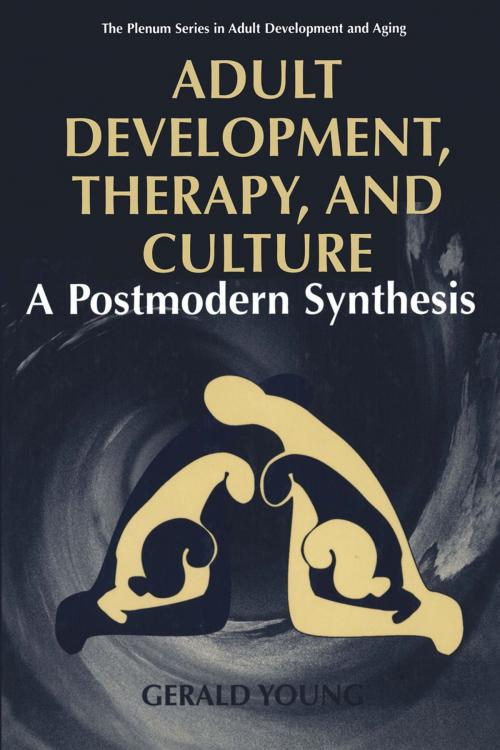Adult Development, Therapy, and Culture
A Postmodern Synthesis
Nonfiction, Health & Well Being, Psychology, Personality| Author: | Gerald D. Young | ISBN: | 9781475790153 |
| Publisher: | Springer US | Publication: | June 29, 2013 |
| Imprint: | Springer | Language: | English |
| Author: | Gerald D. Young |
| ISBN: | 9781475790153 |
| Publisher: | Springer US |
| Publication: | June 29, 2013 |
| Imprint: | Springer |
| Language: | English |
This volume proposes a theoretical integration of several major streams in contemporary psychological theory about adult development and therapy. It adopts the perspective that there are steps in development throughout the adult period, and that they are characterized by a union of the cognitive and affective, the self and the other, and idea with idea (in second-order collective abstractions). That is, they are at once postformal in terms of Piaget's theory, sociocultural in terms ofVygotsky's theory, and postmodern with the latter perspective providing an integrating theme. The affirmative, multivoiced, contextual, relational, other-sensitive side ofpostmodernism is emphasized. Levinas's philosophy of responsibility for the other is seen as congruent with this ethos. The neopiagetian model of development on which the current ap proach is based proposes that the last stage in development concerns collective intelligence, or postmodern, postformal thought. Kegan (1994) has attempted independently to describe adult development from the same perspective. His work on the development of the postmodern mind of the adult is groundbreaking and impressive in its depth. However, I ana lyze the limitations as well as the contributions of his approach, under scoring the advantages of my particular model.
This volume proposes a theoretical integration of several major streams in contemporary psychological theory about adult development and therapy. It adopts the perspective that there are steps in development throughout the adult period, and that they are characterized by a union of the cognitive and affective, the self and the other, and idea with idea (in second-order collective abstractions). That is, they are at once postformal in terms of Piaget's theory, sociocultural in terms ofVygotsky's theory, and postmodern with the latter perspective providing an integrating theme. The affirmative, multivoiced, contextual, relational, other-sensitive side ofpostmodernism is emphasized. Levinas's philosophy of responsibility for the other is seen as congruent with this ethos. The neopiagetian model of development on which the current ap proach is based proposes that the last stage in development concerns collective intelligence, or postmodern, postformal thought. Kegan (1994) has attempted independently to describe adult development from the same perspective. His work on the development of the postmodern mind of the adult is groundbreaking and impressive in its depth. However, I ana lyze the limitations as well as the contributions of his approach, under scoring the advantages of my particular model.















